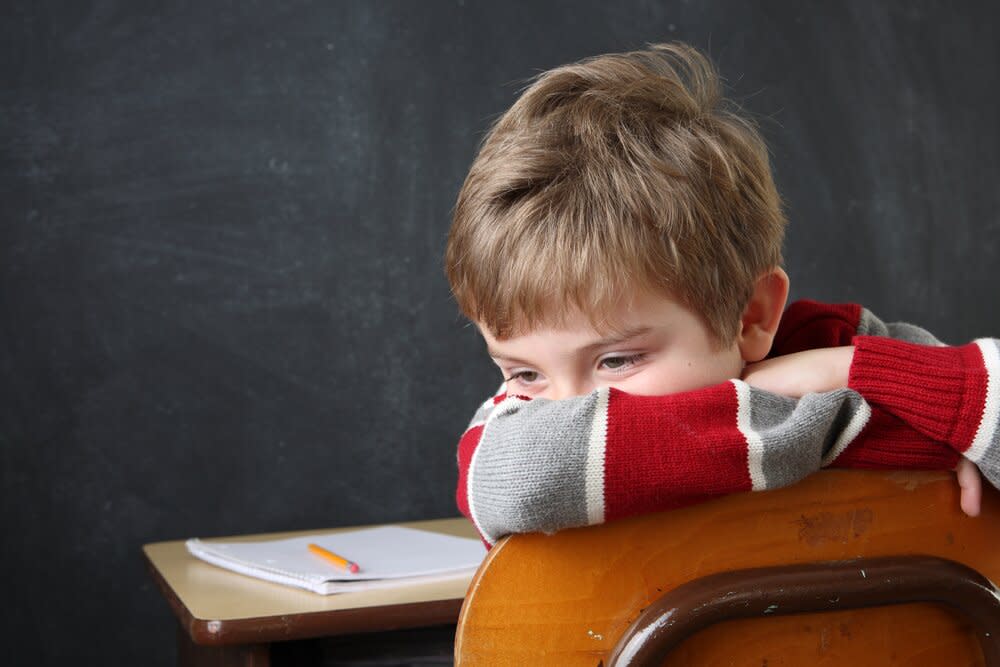5 Myths About ADHD, Dyslexia, and Other Learning and Attention Issues

Shutterstock
Better resources, teacher training, and diagnosis have helped countless kids with learning and attention issues get the help they need to thrive. And with one in five children in the U.S. having a attention or learning issue, there are plenty of kids who need help to achieve their full potential.
But despite the fact that we already know so much more about the most common learning and attention issues—ADHD, dyslexia, auditory processing disorder, and more—there are still some myths out there that refuse to die. Here are five common misconceptions:
1. Children with learning and attention issues aren't as intelligent as their fellow students. "The biggest myth is that having a learning disability means you are not smart," says Dr. Gail Saltz, psychiatrist and host of "The Power of Different" podcast. "Intelligence is most often not connected to the specific learning disability, and many people with a learning disability are very smart. They may have specific difficulty with decoding reading, speed of processing, or ability to maintain attention, but these issues are separate from their intelligence and therefore academic potential."
2. If a child has learning or attention issues, the parents are to blame. People always seem to blame the parents for anything that goes wrong with their kids. But learning issues have nothing to do with parenting prowess. "What we see are kids who are very capable in so many ways but find other things that come easily to most people much more challenging," says Bob Cunningham, Ed.M., who serves as advisor in residence on learning and attention issues for Understood, a partnership of 15 different nonprofits dedicated to helping children with learning and attention issues. "This can be really confusing, and people often look for simple ways to explain what is going on. It's easy to point to 'bad parenting' when a child is not performing well in school."
Because parents often take the heat when their kids struggle with school, some parents may try to deny a diagnosis. "So many parents make the mistake of denial," says Dr. Fran Walfish, a Beverly Hills child, adolescent, family, and relationship psychotherapist, and author of The Self-Aware Parent. "In trying to comfort, they say something like, 'That's not true, you're just like everyone else!' Your child knows the truth. Instead, say, 'I can imagine sometimes it's hard being you when you try your best and hardest and things just don't go the way you hope or wish.'"
3. Children with learning issues need to be in special education classes. "A common myth is that people with learning disabilities can't learn and should be placed in 'special' separate classes," says Dr. Walfish. "In fact, with the proper educational therapy and support most kids with learning disabilities learn to accommodate by utilizing their strengths as supportive backup while exercising their areas of weakness. They absolutely can and do learn, and most often they learn best when they are mainstreamed into regular classrooms."
4. Special education classes aren't as rigorous as mainstream classes. Parents often fight for mainstreaming, worried that their kids may fall behind if they're placed in special education. But experts say that special education may be the ticket to achievement for some kids with learning issues. "There is a mindset that special education is an easier place to be, but it's a harder place to be because students with learning disabilities have to work harder," says Mr. Steven Ray, director of special education at Queen Creek Unified in Arizona. "Students with learning disabilities struggle academically, and have to work harder and longer to achieve at the same rate as their non-disabled peers. Special education classes, therefore, need to be heavy in rigor, and specialized instruction needs to be delivered to the specific academic deficit so that the academic achievement gap can be decreased."
5. Children with learning issues are just lazy. "Many people still think that kids with learning and attention issues are just lazy, but we know this isn't true," Cunningham says. "When people aren't understanding the impact of learning and attention issues, I often ask them to think of the one thing in life that is most difficult for them. Then, imagine what it would be like to be asked to do that thing for hours every day for 13 years. And to have to do it in front of your peers. That's the reality at school for kids who have learning and attention issues."

